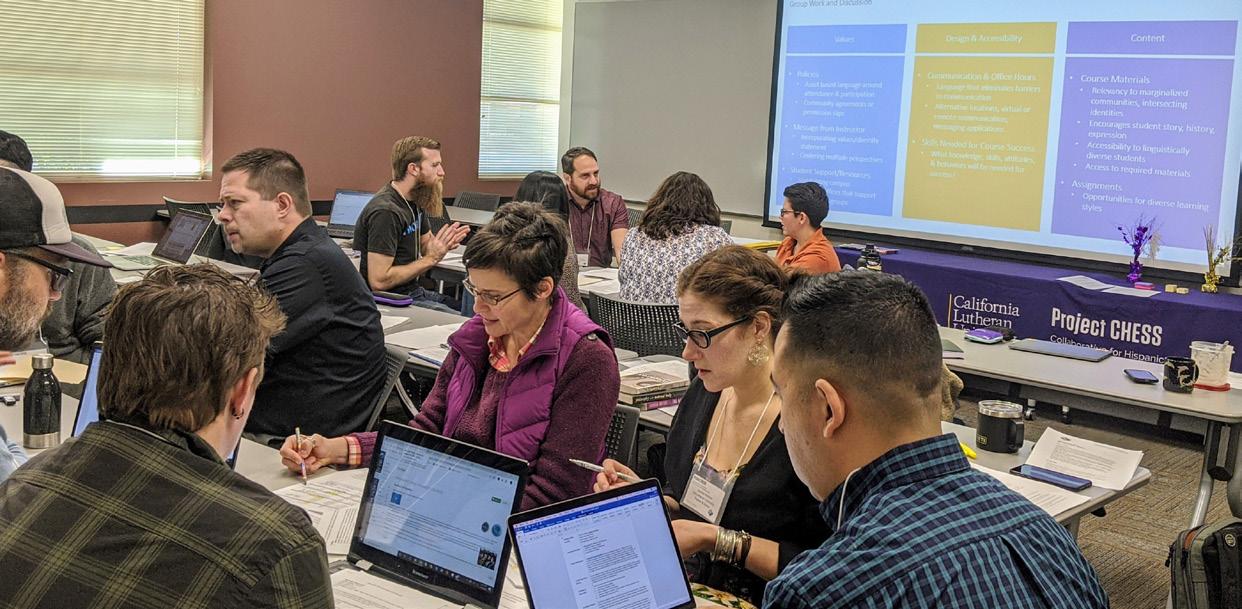
2 minute read
COLLABORATIVE FOR HISPANICS IN HIGHER EDUCATION AND STUDENT SUCCESS
Courtesy of California Lutheran University

Collaborative for Hispanics in Higher Education and Student Success (CHESS) is a Title V HSI cooperative grant between California Lutheran University and Moorpark College to increase transfer, retention, and degree-completion rates of Latinx students. Through cross-institutional collaboration, CHESS counters educational and institutional practices known to create opportunity gaps that impede the academic success of marginalized students. Culturally Inclusive & Responsive Curricula for Learning Equity (CIRCLE), creates a sustainable and replicable capacity for change in the classroom. CIRCLE joins faculty from both institutions to collaboratively redesign courses to incorporate content, policies, and practices that are culturally responsive to Latinx and other marginalized students. These courses will advance both campuses commitment to prioritizing equitable and inclusive practices that support Latinx students. The inaugural cohort of twenty faculty, launched in May 2019, will be joined by a new cohort of twenty additional faculty, in May 2020. “I am so pleased that in twelve months, we have successfully doubled the number of participants. This speaks to the enthusiasm, commitment, and passion our faculty have for providing Latinx students the opportunity and support needed to reach their academic and professional goals.” said Project Director, Adrienne ArguijoMorgan. A faculty participant stated, “I try to create a space…to work to a point where everybody in my class, but especially my young people of color…feel confident sharing their anxieties and concerns. We’re a team working together to accomplish a goal instead of I’m an obstacle you [the student] have to overcome.” Another faculty added, “So, I learned a lot over this process…how language can be so powerfully an indicator of the interrelationship you’re going to have with your students. And how something as simple as the language change in your syllabi can set you on a good path with students
versus set you on a path to create separation.” The May 2020 event creates opportunity for faculty participants to share best practices. One faculty commented, “For me, that has been the most beneficial. Having more experienced faculty share what they noticed. Like, what are specific assignment or things that we might consider doing. Or even answering questions or giving our own perspective on different issues, has been the most beneficial part of this experience.” Current participants will share resources and their journey navigating their course redesign process with the incoming cohort as they embark on the development of their culturally responsive pedagogical practices and classroom spaces. Another faculty shared, “At the end of this program, to be able to develop our own lists of best practices based on what we’re seeing and experienced. And then we can hand it off to the next cohort, and they can add to that. And at the end of the grant, have that real text about the best practices.” As a result of CIRCLE, Arguijo-Morgan anticipates, “We will not only have a repository of materials and resources, but strong evidence of the impact HSI initiatives have on driving Latinx student success. It’s a very exciting and innovative time for our campuses.”









